Time Travel, Teleportation & Science
Time travel is the concept of moving between different points in time in a manner analogous to moving between different points in space, generally using a theoretical invention, namely a time machine. It has a commonly recognized place in philosophy and fiction, but has a very limited application in real world physics, such as in quantum mechanics or wormholes.
Although the 1895 novel The Time Machine by H. G. Wells was instrumental in moving the concept of time travel to the forefront of the public imagination, The Clock That Went Backward by Edward Page Mitchell was published in 1881 and involves a clock that allowed three men to travel backwards in time.[1][2] Non-technological forms of time travel had appeared in a number of earlier stories such as Charles Dickens' A Christmas Carol. Historically, the concept dates back to the early mythologies of Hinduism (such as the Mahabharata), Buddhism, and Islam through ancient folk tales. More recently, with advancing technology and a greater scientific understanding of the universe, the plausibility of time travel has been explored in greater detail by science fiction writers, philosophers, and physicists.
Teleportation, or Teletransportation, is the theoretical transfer of matter or energy from one point to another without traversing the physical space between them. It has a commonly recognized place in science fiction literature, film, and television, but as yet has a very limited application in real world physics, such as quantum teleportation or the study of wormholes.
Science (from Latin scientia, meaning "knowledge") is a systematic enterprise that builds and organizes knowledge in the form of testable explanations and predictions about the universe. In an older and closely related meaning, "science" also refers to a body of knowledge itself, of the type that can be rationally explained and reliably applied. A practitioner of science is known as a scientist.
In modern usage, "science" most often refers to a way of pursuing knowledge, not only the knowledge itself. It is also often restricted to those branches of study that seek to explain the phenomena of the material universe.
Source : Wikipedia
-
05:05
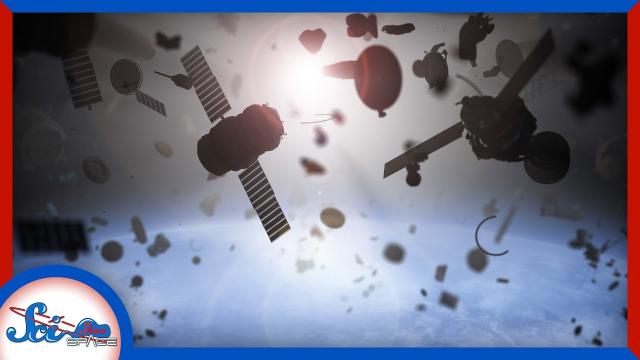
How Climate Change Is Creating More Space Junk
Added 396 Views / 0 LikesYou’ve probably heard a lot about how climate change is affecting our planet, but did you know a warming climate also affects objects in space?SciShow has a spinoff podcast! It's called SciShow Tangents. Check it out at http://www.scishowtangents.org-----
-
3:02:41
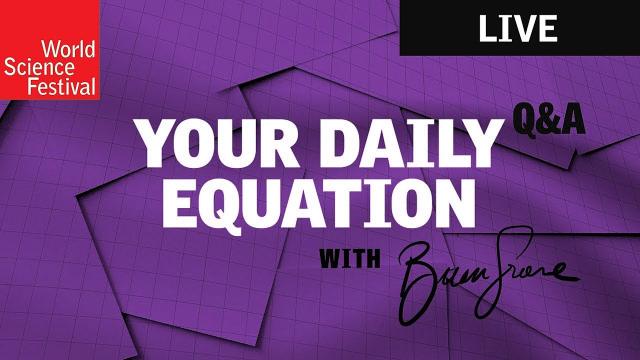
Your Daily Equation | Live Q&A with Brian Greene
Added 396 Views / 0 LikesLive Q&A with Brian Greene - #YourDailyEquation: Join a live session with Brian Greene, 3 PM EDT. Relativity, quantum, the universe -- ask him anything that's on your mind. We’d love to see & hear your questions for future Q&As with Brian Greene. Send us
-
13:48
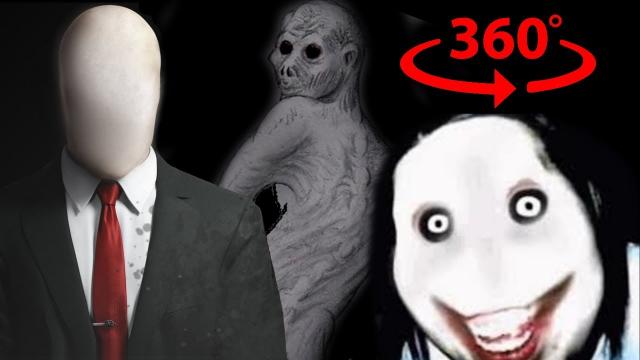
360 Creepypasta Experience VR 4K
Added 395 Views / 0 LikesIn this video, you can experience different creepypasta characters in 4K. This video is scary, so be prepared for jumpscares! From Jeff The Killer to The Rake to Slenderman, this is the full 360 creepypasta experience. Watch with your favorite VR viewer s
-
05:01

We Detected Water Plumes on Europa... 20 Years Ago
Added 395 Views / 0 LikesResearchers found surprising new evidence hiding in data captured back in 1997, and we've discovered stars forming in a distant galaxy as early as 250 million years after the Big Bang.Hosted by: Caitlin HofmeisterFor special, curated artifacts of this uni
-
1:39:21
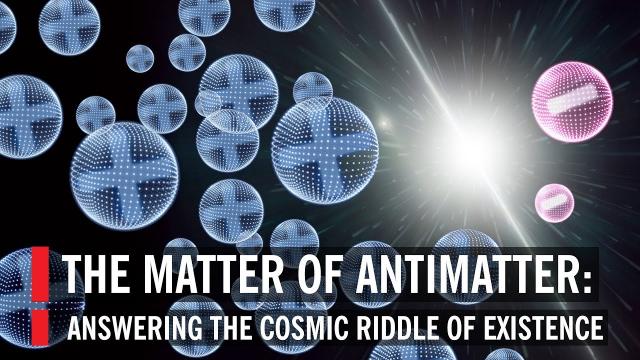
The Matter Of Antimatter: Answering The Cosmic Riddle Of Existence
Added 394 Views / 0 LikesYou exist. You shouldn’t. Stars and galaxies and planets exist. They shouldn’t. The nascent universe contained equal parts matter and antimatter that should have instantly obliterated each other, turning the Big Bang into the Big Fizzle. And yet, here we
-
05:43
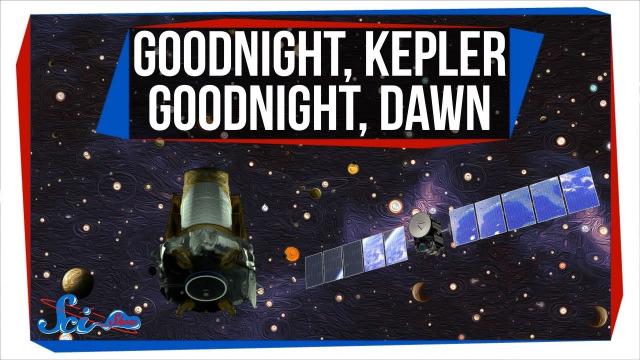
What We Learned from the Kepler Space Telescope | SciShow News
Added 394 Views / 0 LikesOctober was bittersweet for space scientists as we said goodbye to both the Kepler Space Telescope and Dawn mission.Host: Caitlin HofmeisterSciShow has a spinoff podcast! It's called SciShow Tangents. Check it out at https://www.scishowtangents.org-------
-
1:46:44
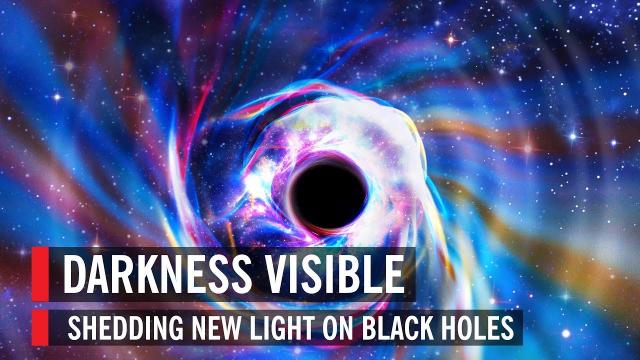
Darkness Visible: Shedding New Light on Black Holes
Added 393 Views / 0 LikesBlack holes may hold the key to understanding the most fundamental truths of the universe, but how do you see something that’s, well, black? Astronomers think they have the answer. Thanks to a global array of radio telescopes that turn the Earth into a gi
-
03:37

I can save the world from my living room
Added 393 Views / 0 LikesMIT engineering students Afeefah Khazi-Syed and Jeba Sania became close friends as active members of the MIT community. Now, even from a social distance, their friendship and resolve to help make the world a better place continues to grow. Watch more vide
-
12:15
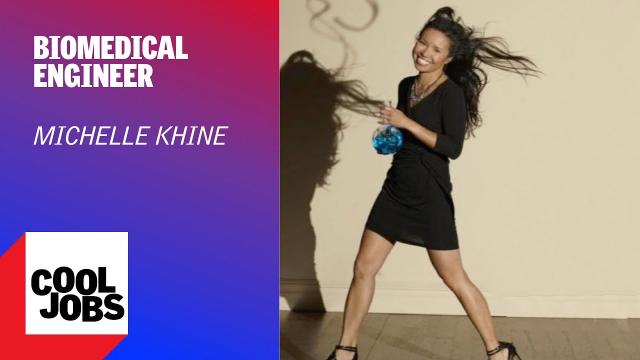
Cool Jobs: Nano Examiner
Added 393 Views / 0 LikesUsing the Shrinky Dinks toy as inspiration, biomedical engineer Michelle Khine invented a way to shrink lab testing materials and equipment, resulting in increased testing speed and reliability while lowering costs.Episode filmed live at the 2013 World Sc
-
06:28
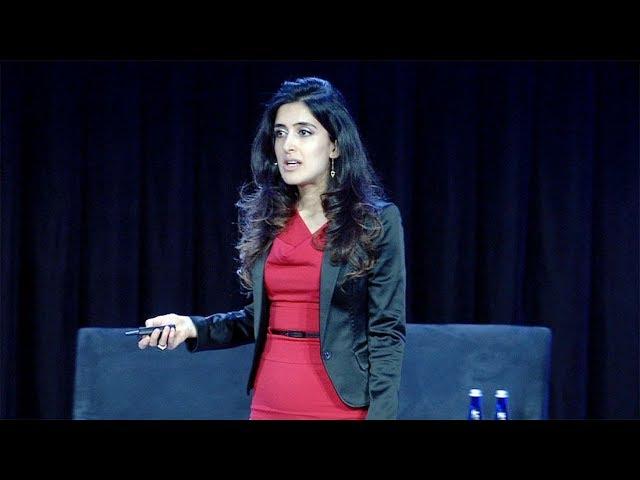
MIT Intelligence Quest Launch: AI-Driven Drug Discovery
Added 392 Views / 0 LikesLeila Pirhaji, Founder and CEO of ReviveMed, describes her startup at the launch event for the MIT Intelligence Quest, an Institute-wide initiative on human and machine intelligence research, its applications, and its bearing on society.Watch more videos
-
05:58
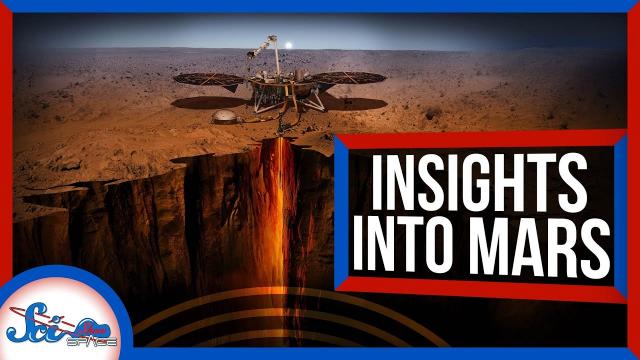
The First Results from NASA's Insight Lander! | SciShow News
Added 392 Views / 0 LikesWe finally have some results from the InSight lander’s measurements on Mars, and the Japanese Space Agency is moving forward with a probe that will explore Mars’s moons.SciShow has a spinoff podcast! It's called SciShow Tangents. Check it out at http://ww
-
48:26
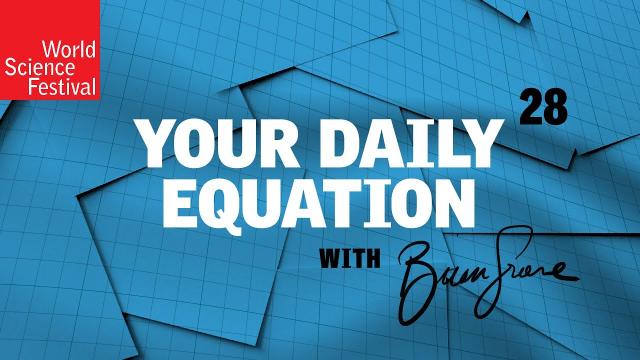
Your Daily Equation #28: Einstein, The Big Bang, and the Expansion of the Universe
Added 392 Views / 0 LikesEpisode 28 #YourDailyEquation: Shortly after Einstein published his new theory of gravity, his general theory of relativity, researchers realized that it predicted that the universe should expanding--a prediction subsequently confirmed by astronomical obs
-
09:24
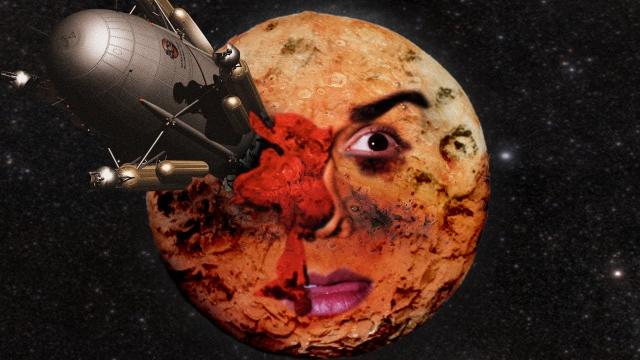
Why Mars?
Added 391 Views / 0 LikesWatch Nat Geo's MARS Monday 11/14 at 9/8c: http://makemarshome.com/ Watch Michael and Kevin's MARS videos: https://youtu.be/KUddy8RGwns?list=PLiyjwVB09t5xDxwO8KpwJA2HTA13xarpf*Thanks to Nat Geo for sponsoring this video*Michael's Video: https://youtu.be/K
-
06:06
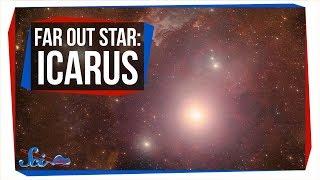
Meet Icarus: The Farthest Star We've Ever Seen
Added 391 Views / 0 LikesWe’ve seen a distant star from another galaxy far, far away, and the Milky Way is growing, thanks to baby stars born in the outer edge of our galaxy’s disk. Hosted by: Hank Green For special, curated artifacts of this universe, check out https://scishowfi
-
1:28:16
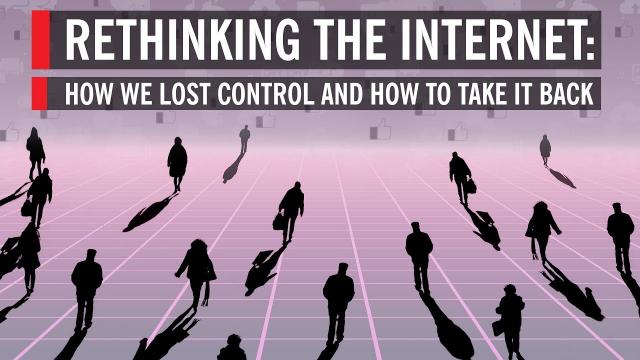
Rethinking The Internet: How We Lost Control And How To Take It Back
Added 391 Views / 0 Likes“Move fast and break things,” went the Silicon Valley rallying cry, and for a long time we cheered along. Born in dorm rooms and garages, implemented by iconoclasts in hoodies, Big Tech, in its infancy, spouted noble goals of bringing us closer. But now,
-
01:10
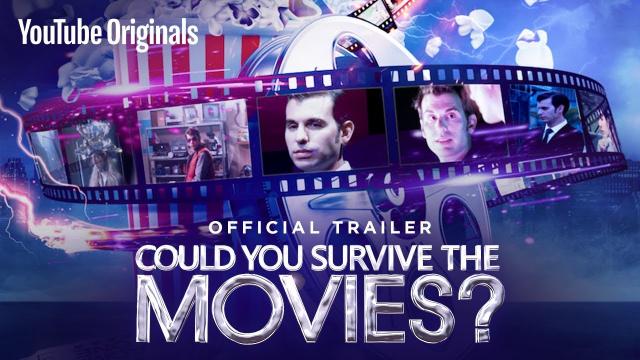
Could You Survive The Movies? - Official Trailer
Added 391 Views / 0 LikesCould You Survive The Movies is a series dedicated to exploring the magic and science of cinema. In each episode, Vsauce3’s Jake Roper (me) takes you on an immersive journey into the world of a different movie; blending unscripted scientific exploration w
-
05:16
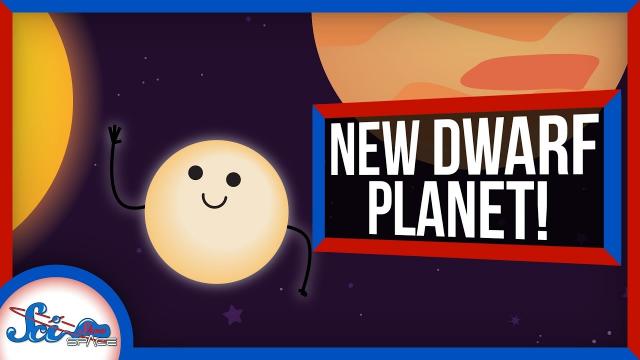
The Solar System Might Have a New Dwarf Planet! | SciShow News
Added 391 Views / 0 LikesAfter observing what we thought was just a big asteroid in the asteroid belt, a team of astronomers now thinks this might qualify as a dwarf planet. And scientists had the chance to directly observe the collision of two neutron stars for the first time.Sc
-
07:10
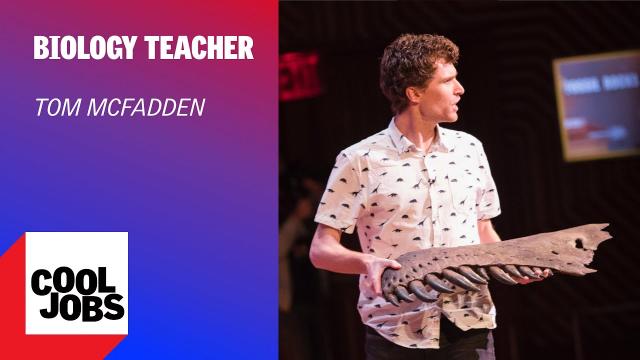
Cool Jobs: The Rhymebosome
Added 391 Views / 0 LikesStudents in the biology class of Tom McFadden write and perform rapping, rhyming biology songs that leave them inspired to learn more. Science teachers prepare tomorrow's pioneering scientists..Episode filmed live at the 2017 World Science Festival in New
-
04:32
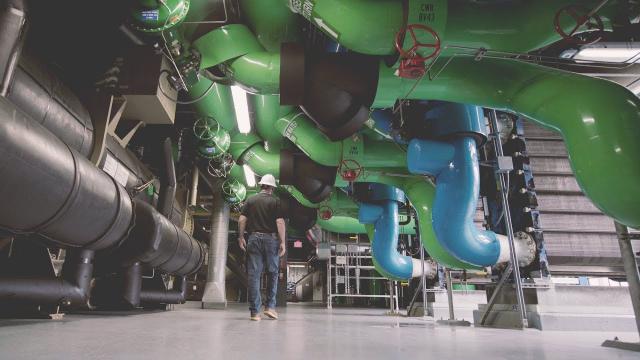
The Heartbeat of Campus: MIT's Central Utilities Plant (CUP)
Added 390 Views / 0 LikesIn 1916, MIT built an on-site steam and electrical power plant to serve its new campus. A state-of-the-art facility for that era, the plant represented MIT’s commitment to cleaner, more efficient generation of energy. A century later, MIT continues to pur
-
36:06
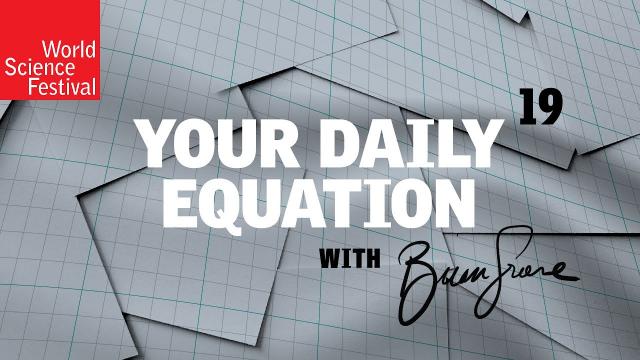
Your Daily Equation | Episode 19: Euler-Lagrange Equations: The Least Action Principle
Added 390 Views / 0 LikesEpisode 19 #YourDailyEquation: We’d love to see & hear your questions for future Q&As with Brian Greene. Send us a video (less than 20 seconds please!) of yourself asking your question to: questions@worldsciencefestival.comMonday - Friday at 3pm EDT, Bria
